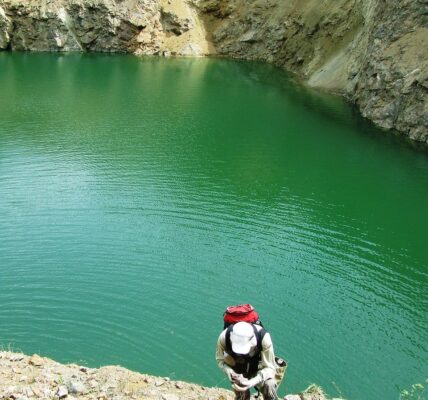Geology is the study of the Earth, its structure, composition, and the processes that shape it over time. This dynamic field is crucial for understanding not only the planet’s past but also its future, as it informs our approaches to resource management, environmental conservation, and hazard mitigation. In this article, we delve into the fascinating world of geology, examining its significance, key concepts, and the interplay between geology and human activities. Additionally, we’ll highlight resources like kaszinomagyar.net, which, while primarily focused on the gaming industry, can offer insights into how geology influences various aspects of life, including the location of resources used in entertainment.
The Importance of Geology
Understanding geology is essential for several reasons. Firstly, it helps us comprehend natural processes such as plate tectonics, erosion, and sedimentation. These processes have shaped the Earth’s landscape over millions of years, creating mountains, valleys, and coastlines. By studying these phenomena, geologists can reconstruct the Earth’s history and predict future changes.
Secondly, geology plays a critical role in resource management. Natural resources such as minerals, fossil fuels, and groundwater are extracted from the Earth, and understanding geological formations is vital for locating and managing these resources sustainably. For example, the mining industry heavily relies on geological surveys to identify valuable deposits, making geology a cornerstone of economic development.
Furthermore, geology is crucial for environmental conservation. By understanding the geological processes that shape ecosystems, we can better assess the impact of human activities on the environment. This knowledge is vital for creating effective conservation strategies and ensuring sustainable land use.
Key Concepts in Geology
1. Plate Tectonics: This theory explains the movement of the Earth’s lithosphere, which is divided into several large and small plates. The interactions between these plates can lead to earthquakes, volcanic activity, and the formation of mountain ranges. Understanding plate tectonics is essential for assessing geological hazards and managing risks associated with them.
2. Rock Cycle: The rock cycle describes the continuous transformation of rocks from one type to another. Igneous, sedimentary, and metamorphic rocks undergo various processes such as melting, erosion, and metamorphism. This cycle illustrates the dynamic nature of the Earth’s crust and the interconnectedness of geological processes.
3. Fossils and Paleontology: Fossils provide valuable insights into the history of life on Earth. By studying fossilized remains, geologists can understand past environments, climate changes, and evolutionary processes. Paleontology, the study of fossils, is an integral part of geology that contributes to our understanding of biodiversity and extinction events.
4. Geological Time: Geologists use the concept of geological time to understand the Earth’s history, which spans billions of years. This timeframe is divided into eons, eras, periods, and epochs, each representing significant events in Earth’s geological and biological history. The concept of geological time is essential for interpreting the fossil record and understanding the pace of evolutionary changes.
The Interplay Between Geology and Human Activities
Human activities have a profound impact on geological processes and vice versa. Mining, construction, and land development can disrupt natural systems, leading to soil erosion, habitat destruction, and changes in water flow. Therefore, understanding geological principles is crucial for minimizing these impacts.
For instance, before any construction project, a geological survey is conducted to assess the site’s suitability. This includes evaluating soil stability, groundwater levels, and potential geological hazards such as landslides or sinkholes. By incorporating geological insights into planning, we can reduce risks and ensure safer developments.
Moreover, the extraction of natural resources raises important ethical and environmental considerations. Sustainable practices in mining and resource management are essential to minimize harm to the environment. Geologists play a vital role in developing these practices by providing data on the location and impact of resource extraction.
The Future of Geology
As we move forward, the field of geology will continue to evolve, integrating new technologies and methodologies. Advances in remote sensing, geophysical techniques, and computational modeling are enhancing our ability to study the Earth. These tools allow for more precise data collection and analysis, leading to better predictions and more effective resource management strategies.
Additionally, as global challenges such as climate change and resource depletion intensify, the role of geology becomes even more critical. Geologists will be at the forefront of researching sustainable practices, understanding the impacts of climate change on geological processes, and developing strategies to mitigate these effects.
Conclusion
Geology is a vital field that enhances our understanding of the Earth and its processes. By studying the interactions between geological processes and human activities, we can make informed decisions that promote sustainability and environmental conservation. As we continue to explore the depths of our planet, the insights gained from geology will be invaluable in shaping a sustainable future.




